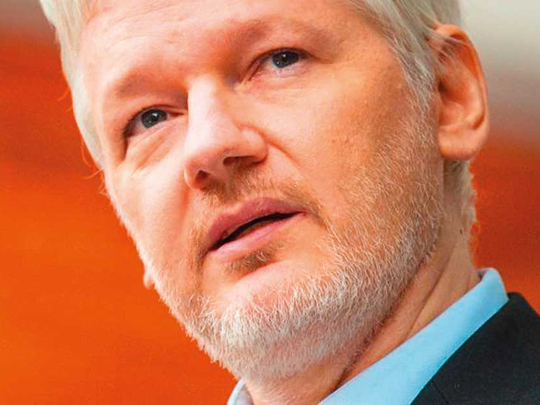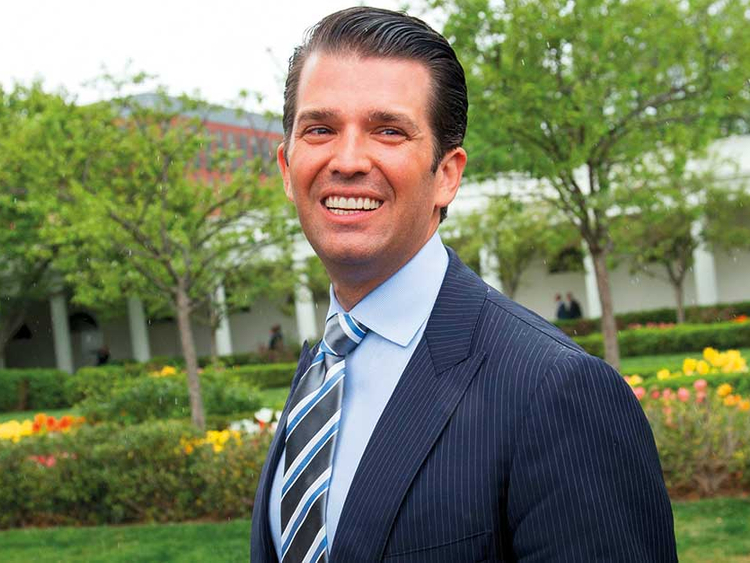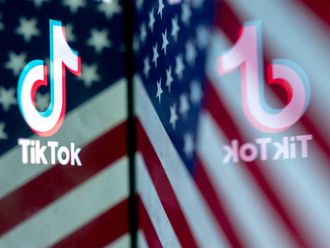
Washington: WikiLeaks tried to have Julian Assange installed as the Australian ambassador to the US after Donald Trump’s election, a new leak of private correspondence from inside the Trump circle has revealed.
On Tuesday, the Atlantic magazine reported Donald Trump Jr, the president’s son, was in contact with WikiLeaks via Twitter direct messages during the final stages of the 2016 election. Copies of the correspondence were handed to congressional investigators by Trump Jr’s lawyers and then obtained by the Atlantic.
Trump Jr subsequently tweeted a transcript of what he said was the entire exchange.
It reveals WikiLeaks and Trump Jr sought information from each another and details a string of increasingly bold suggestions made by WikiLeaks to Trump Jr, including asking for the president-elect to tell Australia to appoint Assange ambassador to the US.
On December 16, a month after Trump’s election, WikiLeaks asked Trump Jr to have his father “suggest” Australia appoint Assange to the post in Washington, DC.
“Hi Don. Hope you’re doing well!” WikiLeaks wrote to Trump Jr. “In relation to Mr Assange: Obama/Clinton placed pressure on Sweden, UK and Australia (his home country) to illicitly go after Mr Assange. It would be real easy and helpful for your dad to suggest that Australia appoint Assange ambassador to DC.”
WikiLeaks went as far as suggesting wording for Trump: “‘That’s ‘a real smart tough guy and the most famous australian [sic] you have!’ or something similar,” WikiLeaks wrote.
“They won’t do it but it will send the right signals to Australia, UK + Sweden to start following the law and stop bending it to ingratiate themselves with the Clintons.”
WikiLeaks also encouraged Trump Jr to leak his father’s tax returns to prevent them being published by a “biased source” such as the New York Times. “If we publish them it will dramatically improve the perception of our impartiality,” WikiLeaks explained.
It also urged the Trump campaign to reject the results of the election as rigged, and in July told the president’s son to release emails detailing his contact with Russian figures during the campaign.
While most of the communication was one-sided, the exchanges between Trump Jr and WikiLeaks came at a highly sensitive moment. They took place only months before the election, at the height of WikiLeaks’ publication of hacked emails belonging to senior Democratic figures.
US intelligence agencies allege the leaks came from the Russian government, which Assange has denied.
On Twitter, Assange said he “cannot confirm the alleged DM’s” and said the Atlantic story was “edited and clearly does not have the full context”.
However, he also pointed to a tweet from his own account in July in which he said he had contacted Trump Jr to urge him to release emails relating to Trump Jr’s meeting with a Russian lawyer he believed might have damaging information on the Clinton campaign.
Assange said the messages showed that “WikiLeaks loves its pending publications and ignores those who ask for details”.
“Trump Jr was rebuffed just like Cambridge Analytica. In both cases WikiLeaks had publicly teased the publications,” he wrote.
“Thousands of people asked about them. WikiLeaks can be very effective at convincing even high-profile people that it is their interest to promote links to its publications.
“WikiLeaks has such chutzpah that it allegedly tried to convince Trump Jr to leak his father’s tax returns & his own ‘Russian lawyer meeting’ emails (he did). WikiLeaks appears to beguile some people into transparency by convincing them that it is in their interest.”
Assange has had a rocky relationship with the Australian government. In 2010, former prime minister Julia Gillard described the release by WikiLeaks of classified documents from the US State Department as “illegal”, and after he was granted asylum by Ecuador in 2012 Australia was accused of “abandoning” him.
Last year, the foreign affairs minister, Julie Bishop, met Assange’s lawyers after a United Nations report found Assange had been “arbitrarily detained” since his arrest in 2010.













